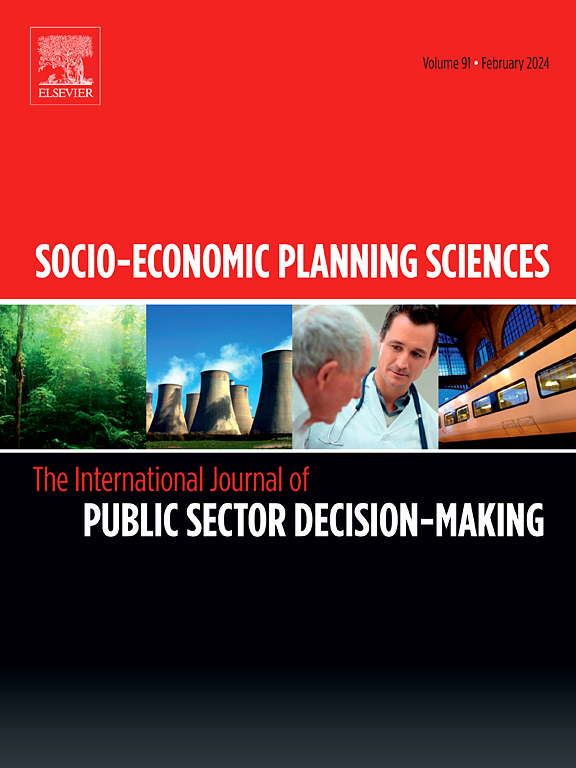Strategies to control corruption in economic development: The role of government spending and public satisfaction
IF 6.2
2区 经济学
Q1 ECONOMICS
引用次数: 0
Abstract
The current efforts of various countries to promote economic development bring income to the nation, used for various government expenditures to further social development. However, economic development often comes with issues related to government corruption and misconduct. This study collects variables related to economic and social development and applies the DN-SBM (Dynamic Network Slack-Based Measure) to analyze the economic development efficiency of 20 European Union member states (referred to as EU20) through a two-stage approach. This model considers intertemporal carry-over variables across different periods and evaluates the impact of corruption on overall national economic development, leading to a more objective assessment. Through empirical analysis, the study explores the influence of economic and social development on overall national economic development. Additionally, it further analyzes each variable using Total-Factor Social Efficiency (TFSE) to understand the reasons influencing national economic development. Empirical findings indicate that some countries are efficient in economic development but inefficient in social development (e.g., Belgium, Denmark), while others are efficient in social development but inefficient in economic development (e.g., Estonia, Finland, France, Poland). TFSE analysis reveals that GDP, security expenditure, and corruption affect citizens' subjective well-being in these countries.
经济发展中控制腐败的策略:政府支出和公众满意度的作用
当前各国促进经济发展的努力为国家带来收入,用于政府的各项支出,以进一步促进社会发展。然而,经济发展往往伴随着与政府腐败和不当行为有关的问题。本研究收集与经济社会发展相关的变量,采用DN-SBM (Dynamic Network Slack-Based Measure)方法,分两阶段对欧盟20个成员国(简称EU20)的经济发展效率进行分析。该模型考虑了不同时期的跨期结转变量,并评估了腐败对国家整体经济发展的影响,从而得出了更客观的评估。通过实证分析,探讨经济社会发展对国民经济整体发展的影响。并利用全要素社会效率(Total-Factor Social Efficiency, TFSE)进一步分析各变量,了解影响国民经济发展的原因。实证结果表明,有些国家在经济发展方面效率高,但在社会发展方面效率低(如比利时、丹麦),而另一些国家在社会发展方面效率高,但在经济发展方面效率低(如爱沙尼亚、芬兰、法国、波兰)。TFSE分析显示,GDP、安全支出和腐败影响这些国家公民的主观幸福感。
本文章由计算机程序翻译,如有差异,请以英文原文为准。
求助全文
约1分钟内获得全文
求助全文
来源期刊

Socio-economic Planning Sciences
OPERATIONS RESEARCH & MANAGEMENT SCIENCE-
CiteScore
9.40
自引率
13.10%
发文量
294
审稿时长
58 days
期刊介绍:
Studies directed toward the more effective utilization of existing resources, e.g. mathematical programming models of health care delivery systems with relevance to more effective program design; systems analysis of fire outbreaks and its relevance to the location of fire stations; statistical analysis of the efficiency of a developing country economy or industry.
Studies relating to the interaction of various segments of society and technology, e.g. the effects of government health policies on the utilization and design of hospital facilities; the relationship between housing density and the demands on public transportation or other service facilities: patterns and implications of urban development and air or water pollution.
Studies devoted to the anticipations of and response to future needs for social, health and other human services, e.g. the relationship between industrial growth and the development of educational resources in affected areas; investigation of future demands for material and child health resources in a developing country; design of effective recycling in an urban setting.
 求助内容:
求助内容: 应助结果提醒方式:
应助结果提醒方式:


